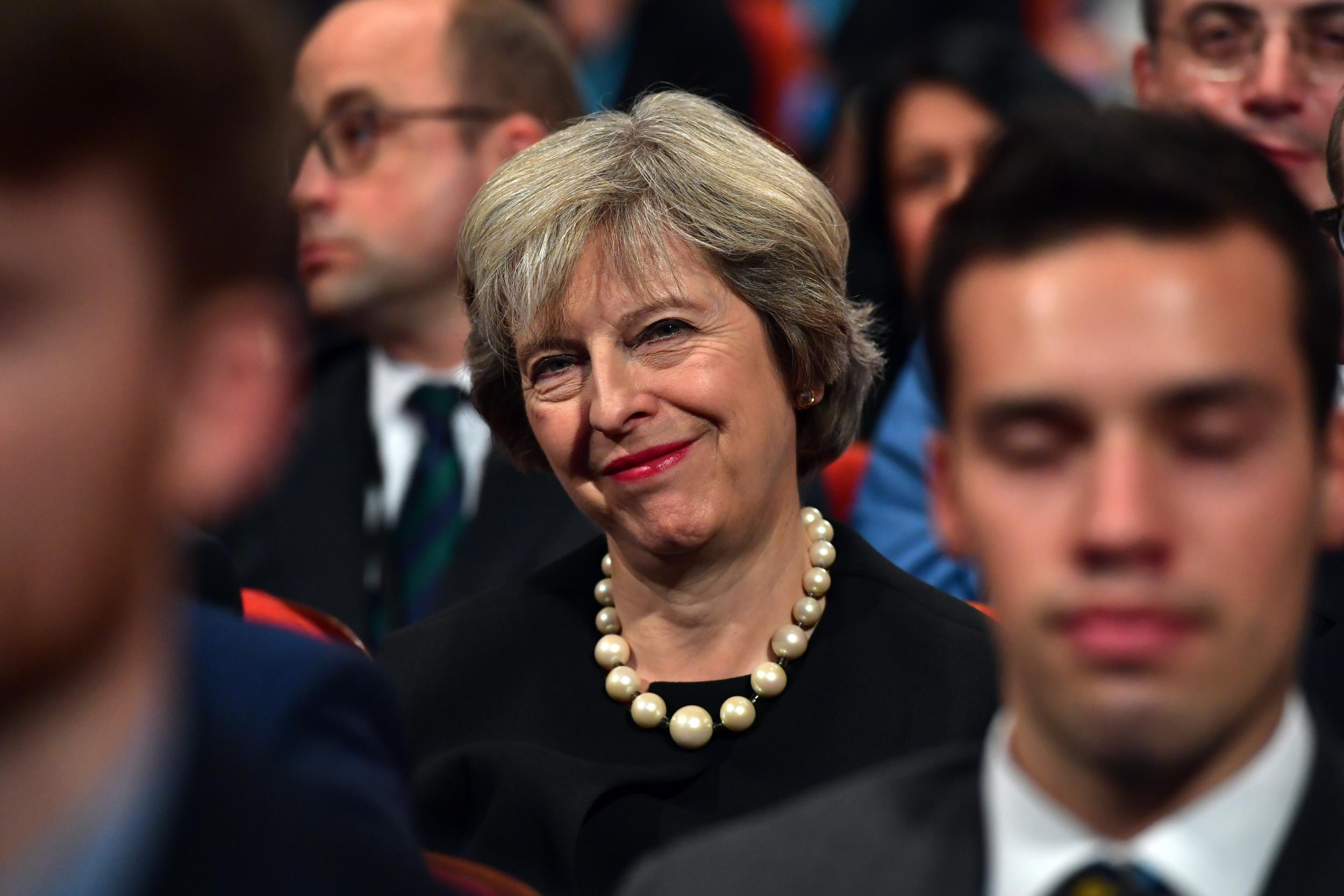We now know the dark truth about Theresa May's Brexit strategy – her Article 50 timing is deliberately against our interests
May has decided that the business of deploying Article 50 will not be managed around the nation’s best interests, but around the 2020 election, and the consequences will be disastrous. The trade deals were never going to be ready in time


Your support helps us to tell the story
From reproductive rights to climate change to Big Tech, The Independent is on the ground when the story is developing. Whether it's investigating the financials of Elon Musk's pro-Trump PAC or producing our latest documentary, 'The A Word', which shines a light on the American women fighting for reproductive rights, we know how important it is to parse out the facts from the messaging.
At such a critical moment in US history, we need reporters on the ground. Your donation allows us to keep sending journalists to speak to both sides of the story.
The Independent is trusted by Americans across the entire political spectrum. And unlike many other quality news outlets, we choose not to lock Americans out of our reporting and analysis with paywalls. We believe quality journalism should be available to everyone, paid for by those who can afford it.
Your support makes all the difference.“Democracy,” said Winston Churchill, ”is the worst form of government, except for all the others.”
It would be some years before he added the qualifying observation that, “The best argument against democracy is a five-minute conversation with the average voter.”
The second thought is one that David Cameron may dwell upon in his old age, which remains a worryingly long way off. In the meantime, his Trotsky-esque erasure from this week’s Conservative Party conference has been as extraordinary as the concomitant rise of the Fourth International in Liverpool last week. A few more “five-minute conversations with the average voter” might have prepared him for what was coming.
But these are rare times, unprecedented perhaps. The most spectacular failure of democracy in a developed nation since before the Second World War.
Democracy is a bad form of government because its methods are blunt, and its timing arbitrary. Once every few years, the people charge the temple with their battering ram and then disperse again for years to come. And the sheer mathematics of time have perhaps never conspired with such misfortune.
Did Cameron have to hold the referendum? Was it a gamble he didn’t need to take? That debate will run forever. But certainly he did it to win the 2015 election. That’s beyond doubt. Sixteen months later, he’s out of office and his party stands ready to roll back the frontiers of all his achievements, few though they were.
Now, this week, is too early for a proud party servant like he to have such thoughts, but years from now, decades even, it is tempting to wonder whether David Cameron himself might come to wonder whether he wouldn't rather have just lost the election.
There will, of course, never, ever be a time when a political party, a political leader, decides an election is one worth losing. All must be subordinated to it. And we now know that Theresa May has decided that the business of deploying Article 50 will not be managed around the nation’s best interests, but around the 2020 election, and the consequences will be disastrous.
The simple mechanism of democracy is meant to safeguard against this. A government that trashes the nation to preserve itself should get voted out. But life is not always simple.
Article 50, we now know, will be deployed by March. That’s when the two year negotiating window will begin. It is widely agreed that two years to negotiate new terms with the European Union is not long enough. Article 50 was designed in this way, to confer advantage on the bloc, not the leaving member. There are presidential elections in France and Germany after that point, effectively writing off a large portion of that precious time.
But Theresa May knows, or rather hopes, that it will mean that the worst of the immediate post-exit horror stories might be out of the way by the time the election comes round. Out of the single market. Out of the customs union. No interim Norway-style arrangement to at least extend the negotiating period, when the palpably obvious becomes palpable reality: that the free trade deals meant to replace our single market membership cannot, will not, and never were going to be completed in anything like the time. What we must have instead is a blitzkrieg attack of economic friendly fire now, so by 2020, some of the smoke has cleared and we’ve all got a bit more used to living among the ruins.
We, on the whole, accept this as part of political culture. The same political culture that compels longstanding political commentators to consider Theresa May “clever” or “shrewd” to place ministers in jobs they are probably not capable of. Historians would call it the “consolidation of power”.
The factors that have conspired to all but guarantee the Conservatives a decade or more of power are not all of their making. Labour’s self-immolation is just that, though for the rise of the SNP, the referendum-happy Cameron is partly culpable.
But when the historians do come to turn their attention to the Tory ascendancy of the early-ish 20th century, the question they will turn to first is whether any of it was worth it at all.
Join our commenting forum
Join thought-provoking conversations, follow other Independent readers and see their replies
Comments